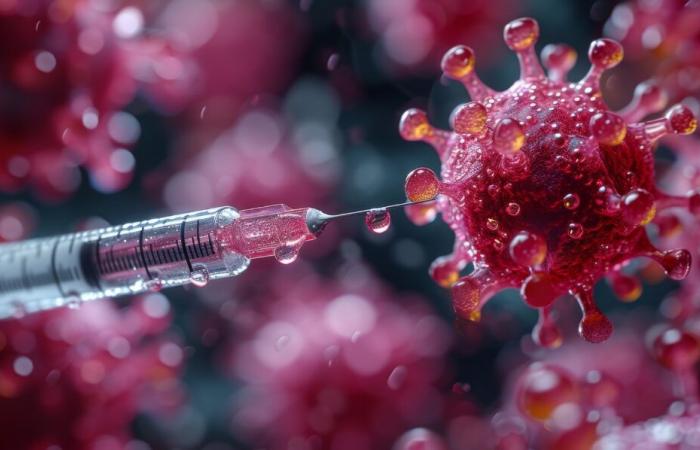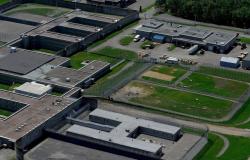In this small clinical trial, patients with triple-negative breast cancer who received an experimental vaccine had a greatly reduced risk of their tumors returning. In addition, immunotherapy appears to be safe, well tolerated and effective in inducing immune responses.
Triple negative breast cancer is an aggressive type of tumor that grows even in the absence of the “hormonal fuel” that stimulates the growth of other types of breast cancer. To date, triple negative breast cancer does not benefit from any targeted therapy and is generally treated with traditional approaches including surgery, chemotherapy and radiotherapy.
A personalized vaccine for each patient and her tumor
The study is therefore a phase I clinical trial carried out on 18 patients diagnosed with non-metastatic triple negative breast cancer (i.e. not spread to other organs). Each patient received standard care and 3 doses of the personalized investigational vaccine, designed to target key mutations in her specific tumor and train immune cells to recognize and attack any cells carrying those mutations. The analysis finds that:
- after treatment, 14 of 18 patients developed immune responses to the vaccine;
-
at 3 years, 16 of the 18 patients still had no cancer recurrence;
- if the trial had been designed to evaluate the safety of the vaccine and without a control group for the relative evaluation of effectiveness, in the “standard care” group alone, only half of the patients were free of cancer at 3 years.
Lead author Dr. William E. Gillanders, professor emeritus of surgery and oncologist at WashU Medicine, summarizes:
“These results are better than we expected. If on a methodological level the comparison is not perfect and the analysis has its limits, this vaccine strategy appears very promising and deserves other randomized controlled trials.
How does it “work”? Patients with triple-negative breast cancer who still have evidence of remaining tumor after an initial round of chemotherapy would be eligible. These patients have a high risk of cancer recurrence even after surgical removal of the remaining tumor. After surgical removal, the tumor tissue is compared with the patient’s healthy tissue to identify unique genetic mutations in the cancer cells. These mutations in cancer cells modify proteins only in the tumor, which then makes it possible to train the immune system with a specific or personalized vaccine to attack the altered proteins, while sparing healthy tissues. Software was developed by the researchers, which makes it possible to select altered proteins – called neoantigens – produced by patients’ tumors and identified as most likely to trigger a strong immune response.
The vaccine thus obtained, for each patient, includes on average 11 neoantigens (4 to 20 precisely depending on the tumor).
“We hope to promote the use of this software for the design of personalized cancer vaccines. These are complex algorithms, but in general the software takes a list of mutations and interprets them in the context of their potential to be good neoantigen candidates.”
Several trials of this form of vaccines, which can also be administered in combination with checkpoint inhibitor immunotherapies that enhance the action of T cells.
Health






